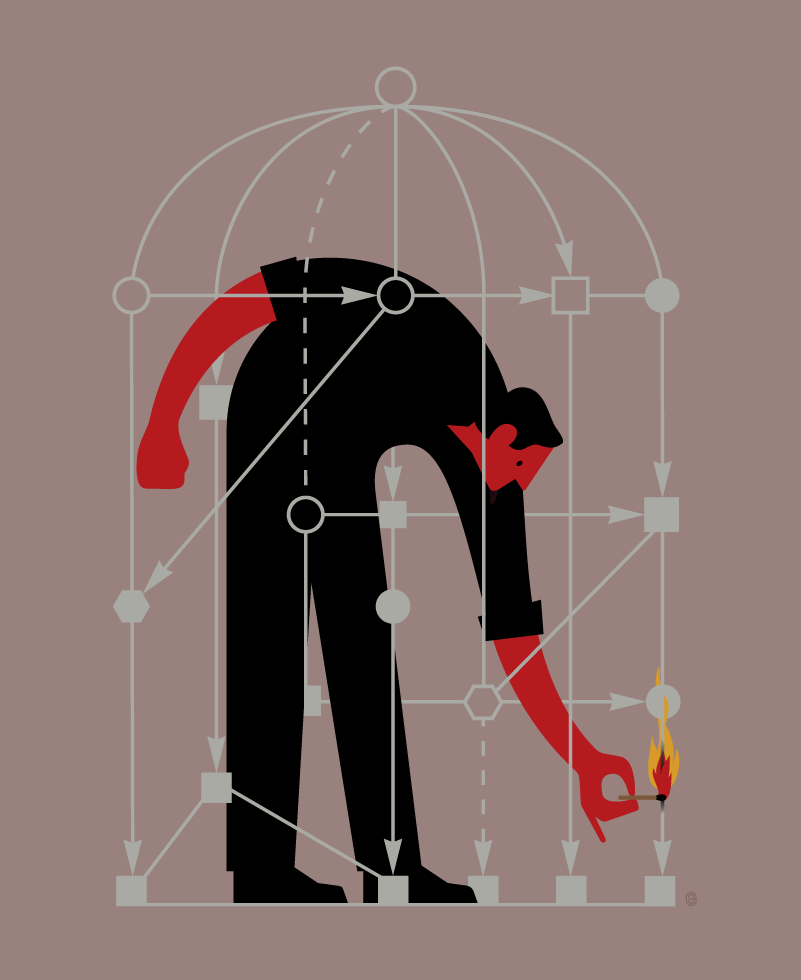"It's easier to fool people than to convince them that they have been fooled." Mark Twain accurately noted this, but it's interesting to delve into why.
When we embrace a new idea, we weave it into the fabric of our worldview. Later, extracting it becomes difficult, as it seems our familiar world would unravel at the seams.
That's why we fiercely defend this idea with doubled strength at the slightest threat. Until reality crushes our illusions into dust.
In this sense, sowing false ideas is much simpler than uprooting them. It's bad when someone deceives us, but it's worse when we deceive ourselves.
Yet, the worst is when today's deception was once our truth. For example, in the past, some approach of ours worked successfully or even saved us.
Since then, everything has changed, yet we persist in acting the same way. In such a case, it is not just challenging to question, but even to recognize the fallacy.
This explains why a previously successful business eventually hits a glass ceiling. In my experience, it's not about a lack of customers, talent, or investments.
It boils down to one or two false assumptions held dear by the founder.
Yours sincerely,
-Alexander
You can help Ukraine defend itself and the World from Russian aggression here.
”Who are you and what do you do?"
As a business therapist, I help tech founders quickly solve dilemmas at the intersection of business and personality, and boost company value as a result.
"I have an important business decision to make. Can you help me?
Reserve a time on my calendar that is convenient for you to meet with me. We'll clarify your request and discuss options for how you can help.


